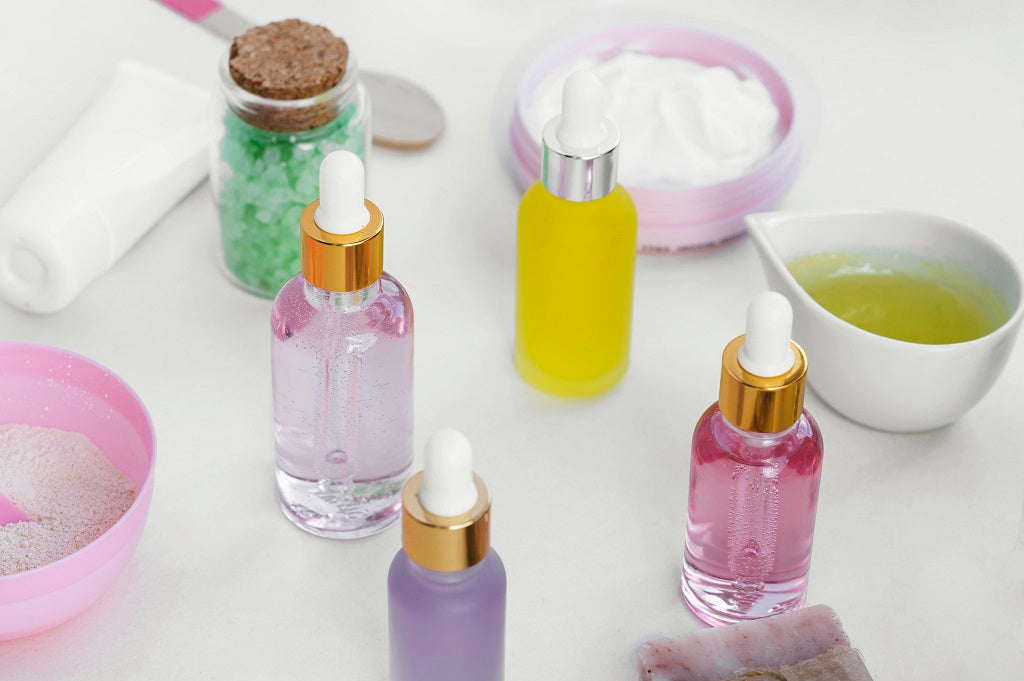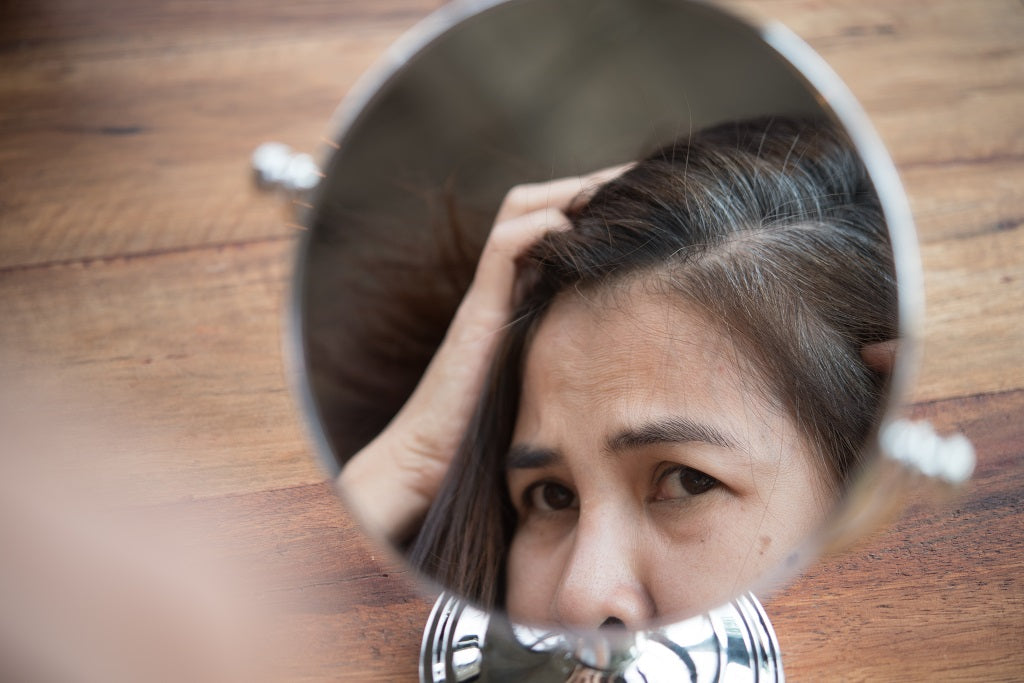Retinol has been a rage in the skincare world and for good reason. It’s a miracle worker, that not only reverses signs of ageing but battles acne and hyperpigmentation too. While people are piling their shelves with different skincare concoctions comprising retinol, it's a good idea to get an in-depth introduction to this popular ingredient. In this blog, we will tell you about 10 factors to keep in mind, while you are using Retinol, so let’s get started.
Here are the top 10 things you need to know before using this powerhouse ingredient.
1. What Is Retinol?
Despite the fact that Retinol is commonly used to refer to products that contain Vitamin A, the truth is that it's a type of retinoid. These retinoid types act in different ways to treat various skin conditions. Topical retinoids boost collagen production as well as accelerate the rate of cell turnover in the skin. It effectively reduces blackheads and acne, by unclogging the pores and regulating sebum production. It also helps with hyperpigmentation by increasing cell turnover and generating new skin cells. Topical retinoids help to improve the overall texture of your skin, reduce the appearance of wrinkles and fine lines, shrink large open pores and even out your skin tone.
The common type of retinoid you can find in your skincare products is retinol and retinyl palmitate. As per experts the efficacy of retinol in skincare products is more as compared to retinyl palmitate. So check the label to verify which type of retinoid is in your skincare product.
2. What Is So Good About Retinol?
There are many benefits of retinol for skin. Retinols are powerful antioxidants that boost collagen production, reducing the appearance of premature signs of ageing. It increases cell turnover, effectively replacing the dead skin cells with the new ones. It regulates oil production and unclogs the pores reducing acne. Moreover, its antioxidant property protects your skin from sun damage. Regular use of retinol-based skincare products is helpful in fading away dark spots and hyperpigmentation, giving your clear, youthful and radiant skin. Thus experts recommend using retinol for skin care issues such as acne, wrinkles and hyperpigmentation.
3. What Is The Most Effective Form Of Retinol?
Understanding retinoids and their types are necessary to determine which form of retinol is most effective.
Retinoid is a derivative of Vitamin A and Retinol, Retin-A and Granactive retinoid are its types. In fact, granactive retinoid is a retinoic acid ester.
All the 3 types of retinoids are effective in treating various skin concerns such as acne, pimple, wrinkles, hyperpigmentation, sun damage etc. Retin-A is more potent compared to retinol. According to dermatologists, Retin-A and Granactive retinoids are more effective for reducing wrinkles and hyperpigmentation than retinol, as they are directly absorbed into the skin. Unlike retinol which needs to be broken down to a simpler form for your skin to be able to absorb it.
Retin-A and granactive retinoids are quickly identified by the skin cells and they easily get absorbed into the skin, hence their efficacy in the skincare formulation is more as compared to retinol. Moreover, if you are using a 0.01% retinol serum, your body would not be getting the said amount of retinol.
4. Who Is Retinol Best For?
Retinols are generally beneficial for all skin types, but people with sensitive skin may experience rashes or allergic reactions. But retinol is not an all in one solution for all skin types. The trick lies in how to use it in accordance with your skin type.
However, experts say that people with dry skin conditions such as dermatitis, and rosacea should avoid retinol or use retinol-based skincare products only after consulting with a dermatologist.
5. When Using Retinol What Should Be Avoided?
Retinol should not be mixed with AHAs, BHAs, benzoyl peroxide, or Vitamin C as it can cause allergic reactions on your skin. AHA and BHA are mild exfoliants that can dry out your skin and benzoyl peroxide cancel the effect of retinol. Vitamin C serum is quite potent and should never be layered with retinol in your skincare regime.
Also Read : Vitamin C Serum- A Staple Food For Your Skin
6. At What Age Should You Start Using Retinol?
Retinol is not a must for all, as it is not well-tolerated by all skin types. If you are committed to skincare then only start using it, otherwise, you won’t get the desired result. If you want to use retinols for anti-ageing benefits then you can probably start using retinol in your late 20s. Retinol protects your skin from the damaging effect of the sun, reduces early signs of ageing, and even out skin tone.
Make sure you apply a moisturizer and sunscreen in the daytime, as retinol may make your skin susceptible to sun damage.
7. When Should I Apply Retinol In My Skincare Routine?
Experts recommend including retinol serum/creams in your night skincare routine, as certain retinoids break down when exposed to the sun's ultraviolet. The different forms of retinoids can make your skin more prone to sun damage, which is why it is important to use sunscreen in the daytime.
Also Read : A Guide To Cocktail Your Skincare
8. How To Include Retinol In Your Skincare Routine?
If you are using retinol for the first time, then try to go slow. Integrate retinol into your skincare regime slowly and steadily. Using retinol too frequently or choosing a formulation that is too harsh on your skin can cause irritation. Initially start off with a low percentage retinol formula (0.01-0.02) using it twice a week. Let your skin get adjusted to retinol and then you can gradually increase the frequency of application.
9. What Are Its Common Side Effects?
Initially, you may experience mild side effects such as skin dryness, irritation and sensitivity to the sun. These symptoms may reduce gradually subside once your skin gets adjusted to retinol. People with dry skin conditions should avoid retinol-based skincare products as it can aggravate their skin condition.
10. How To Include Retinols In Your Daily Skincare Regime?
Remember that slow and steady wins the race. The same applies to retinol. Retinol should be included in your nighttime skincare regime gradually. Start off with twice a week, see how your skin reacts and then gradually increase its frequency to every alternate day.
First, cleanse your skin. Then apply a toner which is followed by retinol serum. Retinol can dry your skin hence it is recommended to apply a moisturizer after applying retinol-based serum. Remember that a little goes a long way. Hence only a pea-sized amount of retinol serum is enough for your face and neck.
Following these 10 commandments will help you successfully incorporate retinol into your skincare routine.
Also Read :
Shhh! This Magical Skincare Product Is A Science Backed Fountain Of Youth In A Tube
Disclaimer: All the content on anveya.com/blogs is solely for information. It is not intended to be a substitute for professional medical advice, diagnosis or treatment. Always seek the advice of your physician or a qualified health care provider. The information, suggestion or remedies mentioned on this site are provided without warranty of any kind, whether express or implied.



